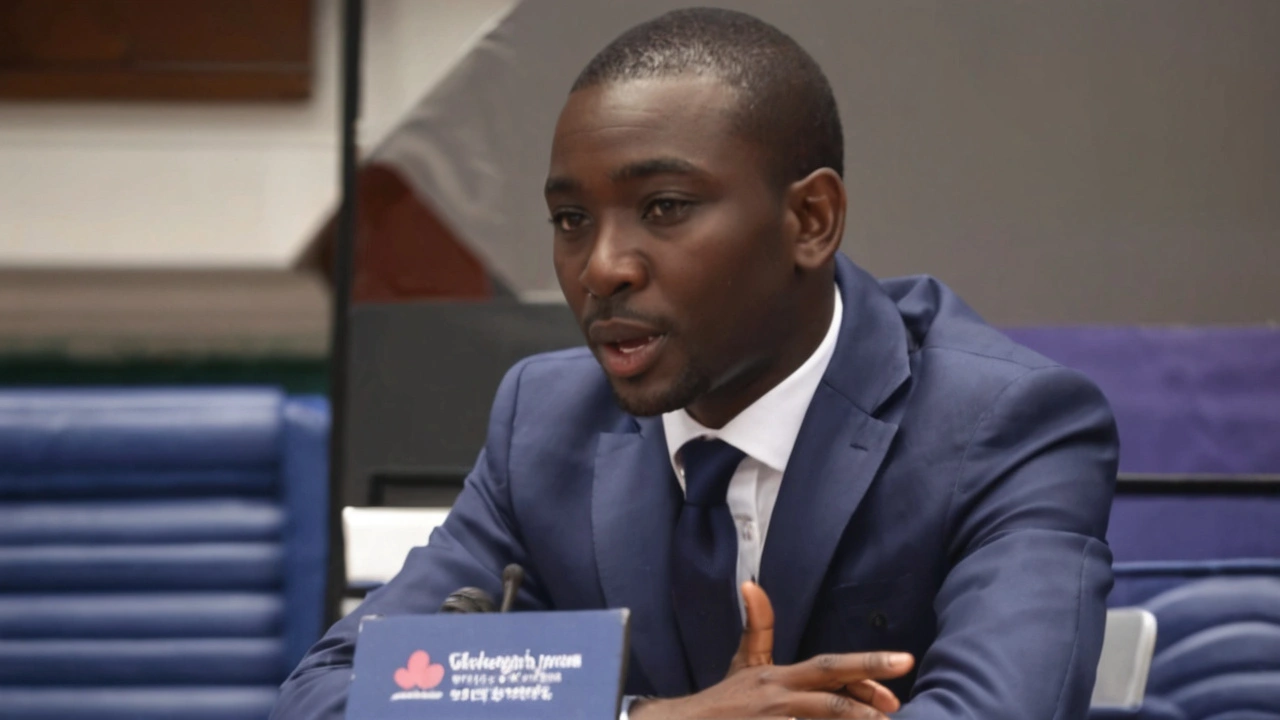Sifuna Denies ODM's Involvement in Ruto's Cabinet Appointments
With the political landscape in Kenya continuously evolving, a recent development has led to heightened tension and substantial public discourse. Edwin Sifuna, the Secretary-General of the Orange Democratic Movement (ODM), has issued a forceful denial regarding claims that ODM has seamlessly integrated into President William Ruto's administration. The conversation erupted after President Ruto announced the nomination of four eminent members from ODM to serve as Cabinet Secretaries.
Unexpected Nominations Ignite Discussion
The four nominated members, including ODM Chair John Mbadi, Deputy Chairs Wycliffe Oparanya and Hassan Joho, along with National Assembly Minority Leader Opiyo Wandayi, were handpicked to join the cabinet. This unexpected move by President Ruto was interpreted by many as a strategic attempt to foster unity and perhaps even dissolve traditional party lines that have typically defined Kenyan politics. However, Sifuna's subsequent statements have underscored a distinct narrative that contradicts this perceived alignment.
Party Structure and Approval Process
According to Sifuna, ODM’s organizational structure is robust and well-defined, with over five million registered members playing a pivotal role in any major decision-making process. Any actual move for ODM to join the government would require comprehensive approval from this expansive membership base. This structure is designed to uphold the party's democratic values and ensure that decisions reflect the collective aspiration of its members rather than the interests of a few individuals.
A Betrayal of Party Principles
Sifuna did not mince words in criticizing the four ODM members who accepted the nominations. He accused them of betraying the core principles of the ODM and acting independently without the party's consensus. This situation has laid bare the internal conflicts within the party, bringing to question the loyalty and true intentions of its members. Sifuna suggested that their acceptance of the cabinet positions might have been driven by personal ambitions rather than the genuine interests of the party.
Raila Odinga's Stipulations Unmet
Adding another layer to the controversy is the stipulation set by Raila Odinga, the prominent leader of ODM. Raila had, in previous statements, outlined specific conditions that needed to be fulfilled before considering any form of collaboration with President Ruto's government. As per the party's stance, these conditions had not yet been met, reinforcing Sifuna’s declaration that ODM has not formally joined forces with the current administration. Raila’s prerequisites were seen as a manifestation of his enduring commitment to the party's ideology and the political plight of the millions who stand behind him.
Public Perception and Political Discourse
The nominations and the subsequent fallout have ignited a wave of public debate and criticism. Many supporters of ODM feel bewildered and betrayed by the actions of the nominated members, questioning where the party stands in the current political spectrum. On the other hand, President Ruto's move has been seen as an astute political masterstroke by some, potentially targeting a dilution of intense rivalries that have famed Kenyan politics for years.
Strategic or Politically Naïve?
This unfolding scenario pushes political analysts and the public to contemplate – was President Ruto’s strategy reflective of sincere political inclusiveness, or a naïve underestimation of ODM’s internal solidity and solidarity? The implications of such appointments go beyond individual party lines and hint at a fabricating political narrative aimed at appeasing broader nationalistic sentiments. However, to achieve political harmony, cooperation must be built upon authentic mutual respect and agreements.
Uncertain Future
As it stands, the political future for these four key ODM figures hangs in a delicate balance. Their allegiance now appears torn between personal political advancement and fidelity to the ODM’s collective vision. This controversial chapter in Kenyan politics signifies a period of introspection for ODM as it reconciles internal conflicts and seeks to reassure its base of unwavering loyalty to its foundational values.
Impact on Kenyan Politics
Broader implications of these developments on Kenyan politics are undeniable. They bear the potential to reshape alliances, define political trajectories, and influence public opinion significantly. It remains to be seen how ODM navigates these turbulent times and whether their structural integrity and democratic processes can withstand this intrusion of perceived dissent.
As Edwin Sifuna, Raila Odinga, and other party stalwarts continue to deliberate their next steps, the eyes of the nation are firmly fixed on this unfolding political drama. The fervor of political allegiance, the drive for power, and the struggle to stay true to party philosophy make for a gripping spectacle in Kenya’s dynamic political theater.



tushar singh
July 27, 2024 AT 00:51Politics isn’t about rigid lines-it’s about solving problems. These four leaders are stepping up for the country, not just the party.
Let’s not punish them for trying to make things work. We need more bridge-builders, not gatekeepers.
Hailey Parker
July 27, 2024 AT 02:11John Bartow
July 27, 2024 AT 23:32Mark L
July 29, 2024 AT 13:23Orlaith Ryan
July 30, 2024 AT 11:13Jacquelyn Barbero
July 30, 2024 AT 12:00toby tinsley
July 31, 2024 AT 07:11Chris Richardson
August 1, 2024 AT 10:56Arvind Pal
August 2, 2024 AT 03:43Mark Archuleta
August 2, 2024 AT 13:10Pete Thompson
August 4, 2024 AT 05:52Richard Berry
August 4, 2024 AT 08:04Sandy Everett
August 4, 2024 AT 13:15J Mavrikos
August 6, 2024 AT 10:49Stuart Sandman
August 7, 2024 AT 10:16DJ Paterson
August 8, 2024 AT 05:36Nikhil nilkhan
August 9, 2024 AT 02:50Damini Nichinnamettlu
August 10, 2024 AT 13:18